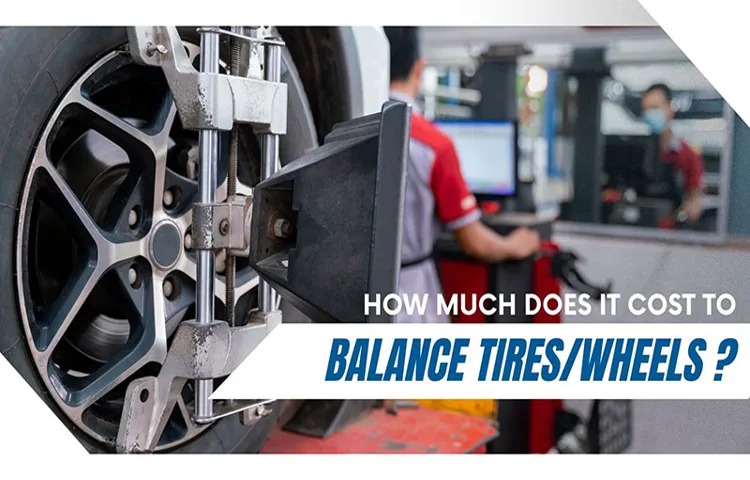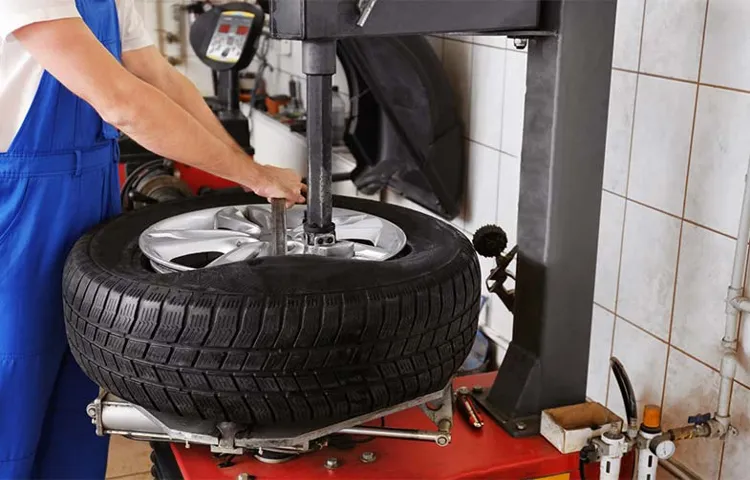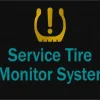Getting new tires for your vehicle can be both exciting and overwhelming. On one hand, you’ll get to experience improved performance, handling, and safety. On the other hand, you might not be looking forward to the added expenses that come with it.
One cost that you may be particularly curious about is the tire mount and balance cost. How much will it cost you to have your new tires mounted and balanced? Is it worth the investment? In this blog, we will provide insight into tire mount and balance costs, so you can make an informed decision.
Table of Contents
What Are Tire Mount and Balance Services?
How much does tire mount and balance cost? Finding the answer to this question can depend on several factors, including the type of vehicle you have, the location you go to, and the quality of service you choose. Tire mount and balance services are essential for maintaining the health and performance of your car. During a tire mount, technicians take off the old tires and replace them with new ones.
Balancing involves making sure that the weight of each tire is evenly distributed, which helps prevent vibration and uneven wear. The cost of tire mount and balance services is typically based on a per-tire basis and can range from $20 to $100, depending on the above factors. It’s important to shop around and compare prices to ensure you get the best deal while not compromising on the quality of service.
Overview of Tire Mount Services
Tire mount and balance services are offered by mechanics and auto shops to properly install and balance new tires onto your vehicle. The process starts with removing the old tires from your rims and inspecting them for any damage or wear. Next, the technician will mount the new tires onto your rims using specialized equipment and torque them to the proper specifications.
The final step is balancing the tires to ensure that they spin evenly and smoothly, which greatly improves your vehicle’s handling and performance. This service is essential for any car owner who needs to replace their tires, as it ensures that the new tires are installed safely and correctly. If you’re looking for a reliable mechanic to handle your tire mount and balance services, be sure to do your research and find a trusted shop that offers high-quality work at a fair price.

Overview of Tire Balance Services
Tire balance services are critical to ensuring a smooth and safe driving experience. When you schedule a tire mount and balance service, a technician will remove the wheel and tire and place it on a machine that spins it at a high speed. The machine will then measure any imperfections in the balance of the tire and will add small weights to the wheel to counterbalance the deficiencies.
This will help ensure your vehicle rides smoothly and increases tire life. Taking care of your tires by getting regular tire balance services can also improve fuel efficiency and prevent accidents caused by unstable or poorly balanced tires. Don’t neglect your tires – make sure to schedule a tire balance service at regular intervals, as recommended by your vehicle’s manufacturer.
Factors That Affect The Cost
If you need to have your tires mounted and balanced, you’re probably wondering how much it will cost you. There are several factors that can affect the cost, including the size of your tires, the type of vehicle you drive, and where you go for the service. Generally, the larger your tires, the more expensive the service will be.
Additionally, if you drive a luxury vehicle or sports car, you can expect to pay more for tire mount and balance than if you drive a standard sedan or economy car. Finally, where you go for the service can also impact the cost. Dealerships and specialty tire shops may charge more than a general auto repair shop.
So, it’s a good idea to shop around and compare prices before you decide where to have your tires mounted and balanced. Overall, you can expect to pay between $30 and $100 per tire for the service, depending on these various factors.
Type of Tire
When it comes to determining the cost of tires, there are a few factors that come into play. One of the most significant factors is the type of tire you choose. Tires come in various types such as all-season, winter, summer, off-road, and performance.
Each type is designed for specific road conditions and driving styles. For instance, if you live in an area that experiences harsh winter conditions, you will need a set of winter tires, which are designed to provide optimal traction and grip on snow and ice. On the other hand, if you value speed and performance, you might opt for high-performance tires that offer excellent handling and stability at high speeds.
While some types of tires may be more expensive than others, it’s essential to choose the right type of tire for your driving needs to ensure a safe and comfortable driving experience.
Rim Size
Rim size can greatly affect the cost of your tires. When it comes to purchasing new tires, one of the biggest factors that impacts the price is the size of the rim. Generally speaking, the larger the rim, the more expensive the tire will be.
This is because larger rims require more material to produce, which results in a higher cost. In addition, larger rims also typically require more advanced technology and engineering to ensure that they perform optimally, which adds to the overall cost. Other factors that may influence the cost of your tires include the type of vehicle you drive, the brand you choose, and the type of tire you select.
So, if you’re in the market for new tires, be sure to consider the size of your rims as a factor in determining the overall cost of your purchase. Whether you have small or large rims, it’s important to find the right size tire that fits your vehicle properly and meets your driving needs.
Location and Labor Cost
Location and labor cost are two critical factors that affect the cost of production. Different locations have different labor costs due to differences in the cost of living and the availability of skilled labor. For instance, developed countries like the US and the UK have higher labor costs than developing countries such as India and China.
The cost of living in developed countries is also higher, resulting in increased wages and salaries for the employees. As a result, manufacturing a product in a developed country will be more expensive than in a developing country. Additionally, labor cost is not only about the wages paid to employees but also includes other expenses such as employee benefits, insurance, and taxes.
To minimize production costs, many companies choose to outsource production to countries with lower labor costs. However, they need to consider factors such as quality control, transportation, and intellectual property rights. All these factors play a vital role in determining the final cost of production, and businesses must consider them carefully to remain competitive in the market.
Average Tire Mount and Balance Cost
“How much does tire mount and balance cost?” is a common question among car owners who need to replace their tires. The total cost of mounting and balancing your tires may vary depending on the type of tire you choose and the labor rates of the mechanic or dealership you hire. On average, a standard tire mount and balance service will cost between $15 to $45 per tire.
For high-performance tires or larger trucks and SUVs, the cost may be slightly higher. Some tire shops may also offer additional services such as tire rotation, alignment, and repairs, which will increase the overall cost. However, it is crucial to have your tires professionally mounted and balanced to ensure a safe and smooth ride.
Don’t skimp on this necessary service, and always ask for a written estimate before proceeding with any work to avoid unexpected costs.
Costs Without TPMS Sensor
If you’re shopping around for new tires, you may be wondering about the potential costs associated with mounting and balancing. On average, the cost to mount and balance a tire ranges from $15 to $45 per wheel. However, these prices may vary depending on the type of tire you have, the size of your wheels, and where you go for service.
It’s important to note that the price of mounting and balancing does not include the cost of a TPMS sensor. If your vehicle requires a TPMS sensor, which monitors your tire pressure and alerts you if it becomes too low, you can expect to pay an additional cost for each sensor. It’s essential to make sure your TPMS sensors are in good working order, as they play a crucial role in your vehicle’s safety and efficiency.
Before you make any decisions about buying new tires, be sure to factor in these additional costs to ensure you’re getting an accurate estimate of what you’ll be spending.
Costs With TPMS Sensor
If you’re wondering about the costs associated with tire pressure monitoring system (TPMS) sensors, there are a few things to consider. One of the main costs you can expect is the average tire mount and balance cost. Depending on the location and the type of vehicle you drive, this cost may vary.
Generally, the cost for a tire mount and balance ranges from $20 to $100 per tire. Keep in mind that if your vehicle has TPMS sensors, there may be additional costs involved with servicing or replacing them. While the cost of TPMS sensors can seem daunting at first, they are an essential part of your vehicle’s safety system and can save you money in the long run by preventing tire damage and improving fuel efficiency.
Conclusion and Final Thoughts
In conclusion, tire mount and balance costs can vary depending on factors such as location, type of vehicle, and the specific services offered by the mechanic or tire shop. However, one thing is for certain: neglecting these services can lead to uneven tire wear, poor vehicle handling, and potentially dangerous driving conditions. So, while the cost of tire mount and balance may seem like a hassle at first, it ultimately saves you money and promotes safer driving.
Remember, taking care of your tires is like investing in your car’s health – don’t skimp on the balance and mount costs!”
FAQs
What is the average cost to mount and balance tires?
The average cost to mount and balance a tire is around $15 to $45 per tire depending on the type of vehicle and the type of tire.
Does the cost of mounting and balancing tires vary among different shops?
Yes, the cost of mounting and balancing tires can vary among different shops, as they may charge different rates based on their labor costs and overhead expenses.
Are there any additional charges to mount and balance tires, such as valve stems or disposal fees?
Yes, some shops may charge extra fees for valve stems, disposal of old tires, or other additional services. It’s important to ask for a clear breakdown of all charges before agreeing to the service.
Can I save money by purchasing tires from a shop that includes free mounting and balancing?
Yes, some tire shops may offer free mounting and balancing as a promotion or part of a package deal when purchasing new tires. This can help you save money on the overall cost of new tires.
Is it necessary to balance tires when mounting them?
Yes, balancing tires is important to ensure that weight is evenly distributed throughout the tire and wheel assembly, which can help prevent vibrations, uneven wear, and unsafe driving conditions.
How often should I have my tires mounted and balanced?
It’s recommended to have your tires mounted and balanced every time you change your tires or every 6,000 to 8,000 miles to ensure optimal performance and safety.
Can I mount and balance tires myself to save money?
While it’s possible to mount and balance your own tires, it’s generally recommended to leave it to the professionals, as improper mounting and balancing can lead to unsafe driving conditions and premature tire wear.



